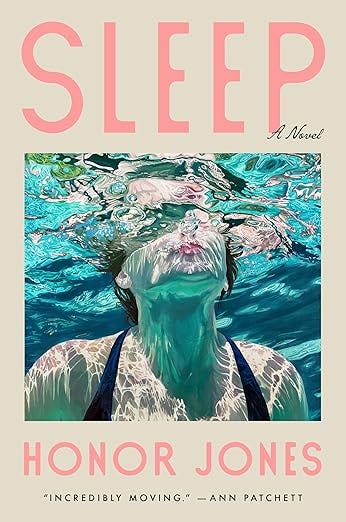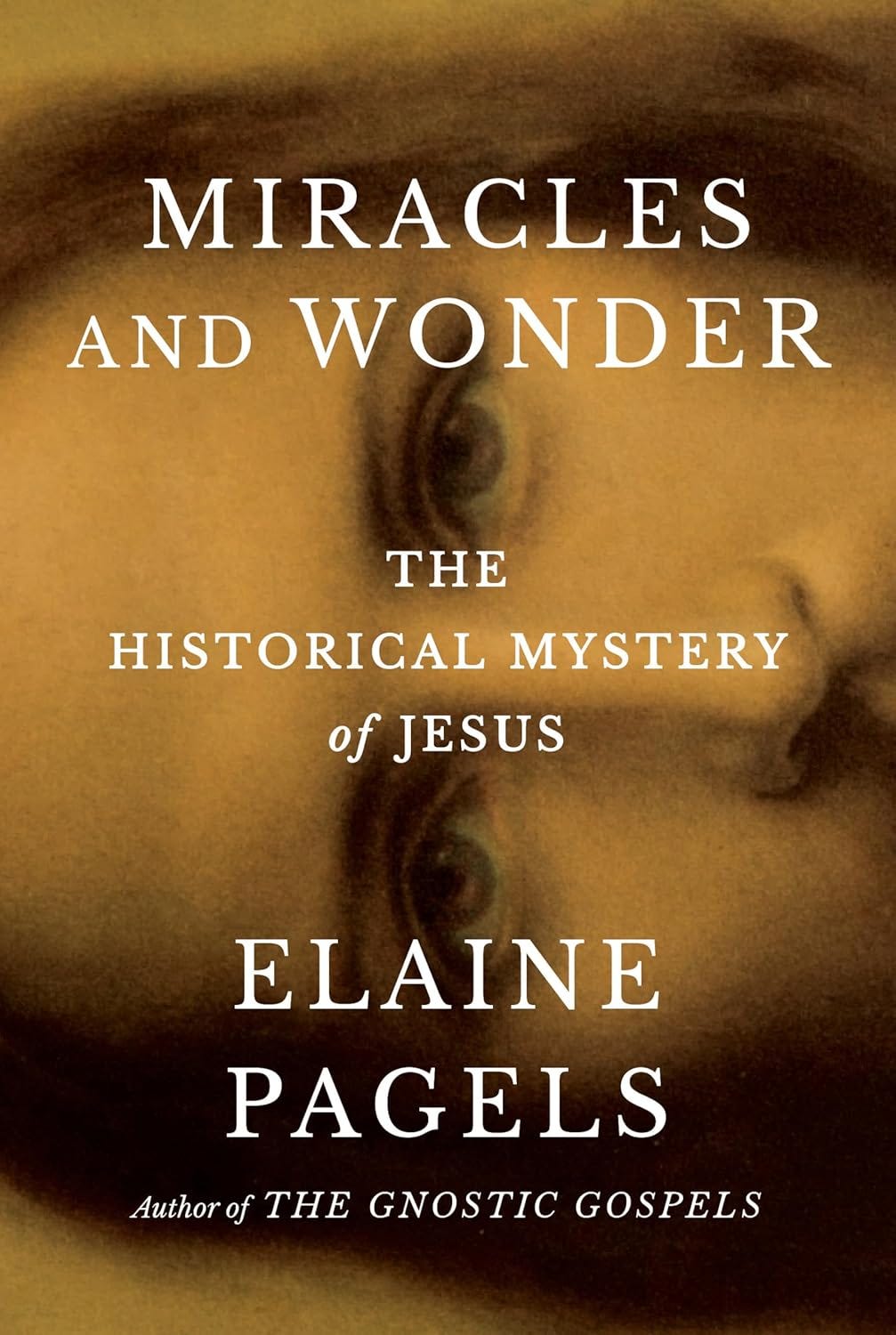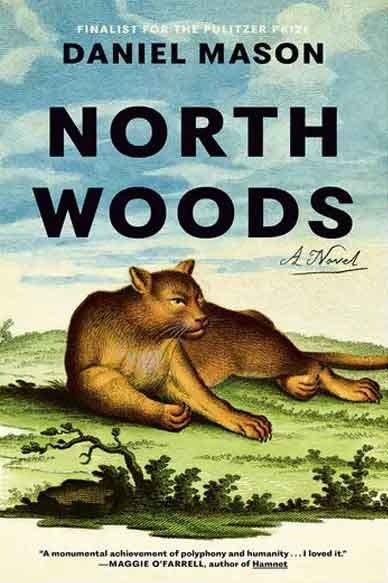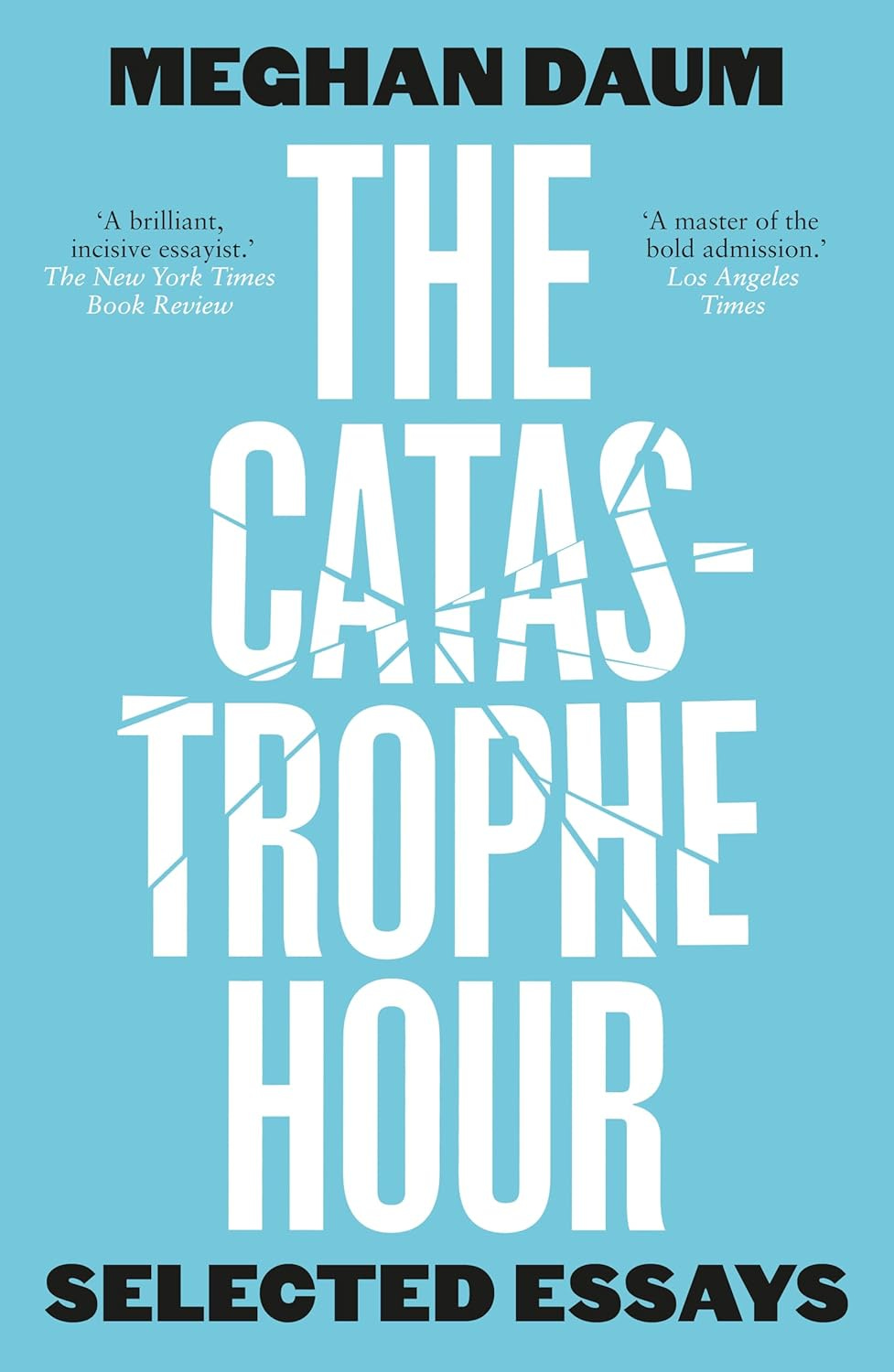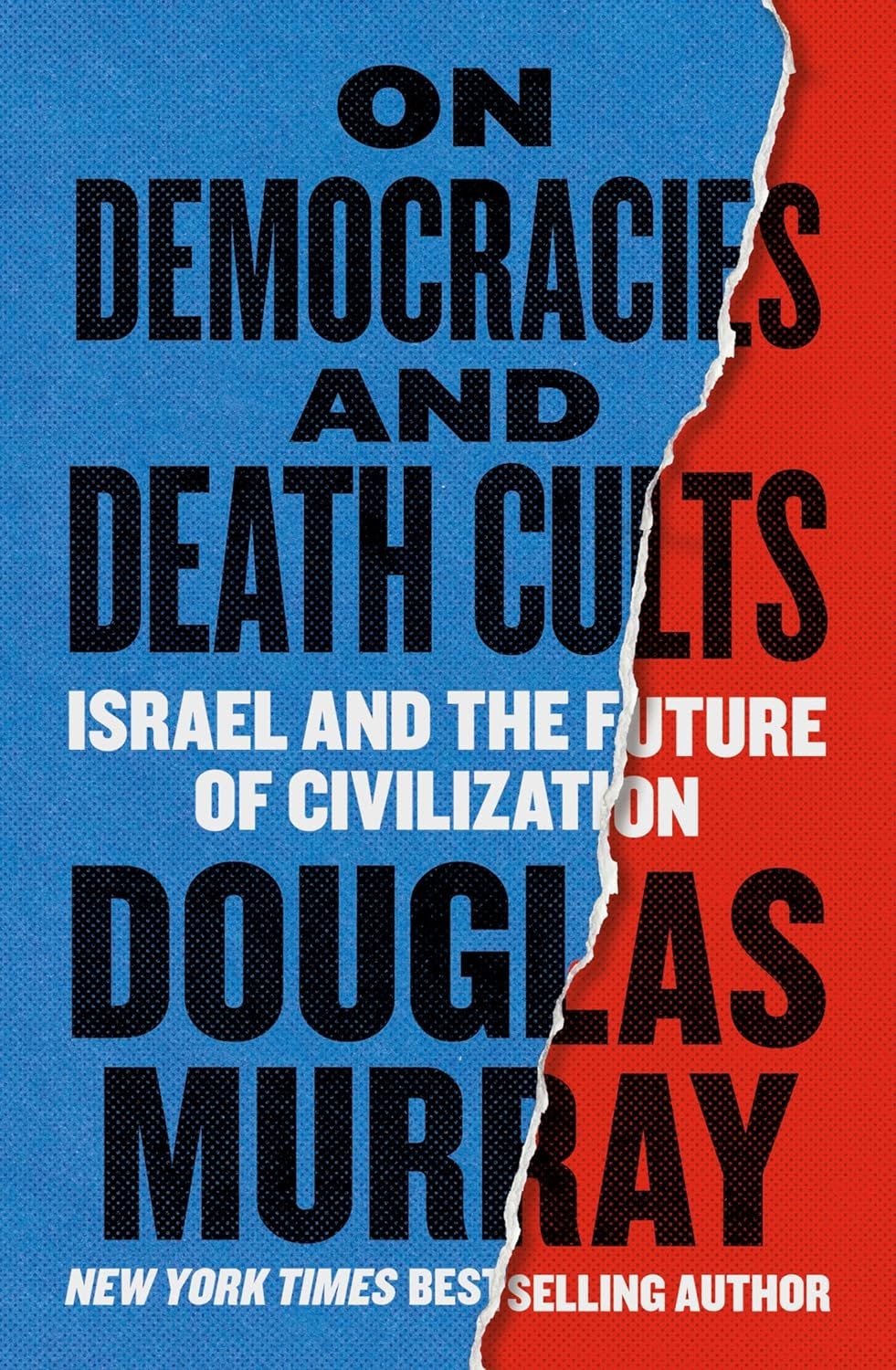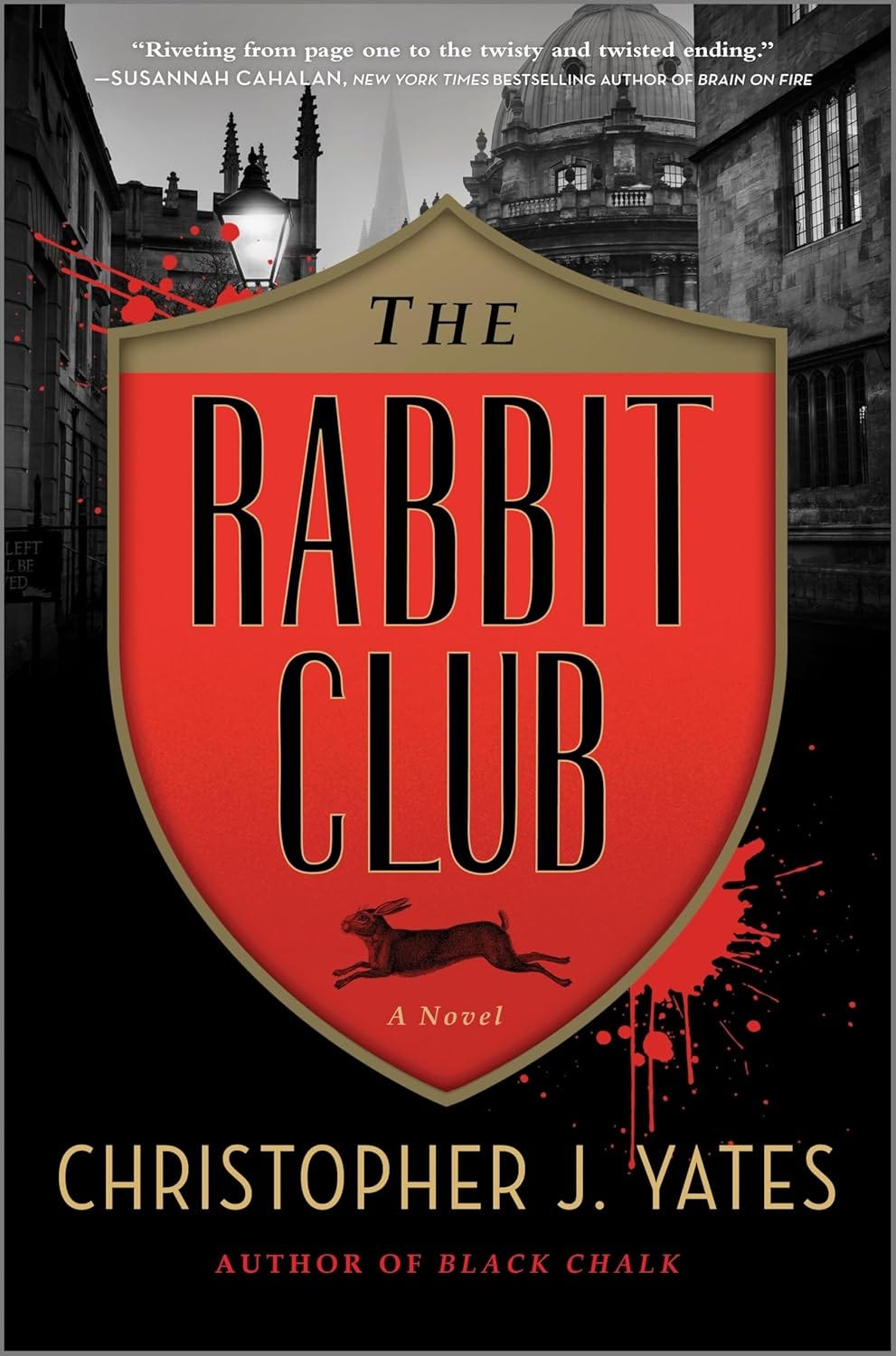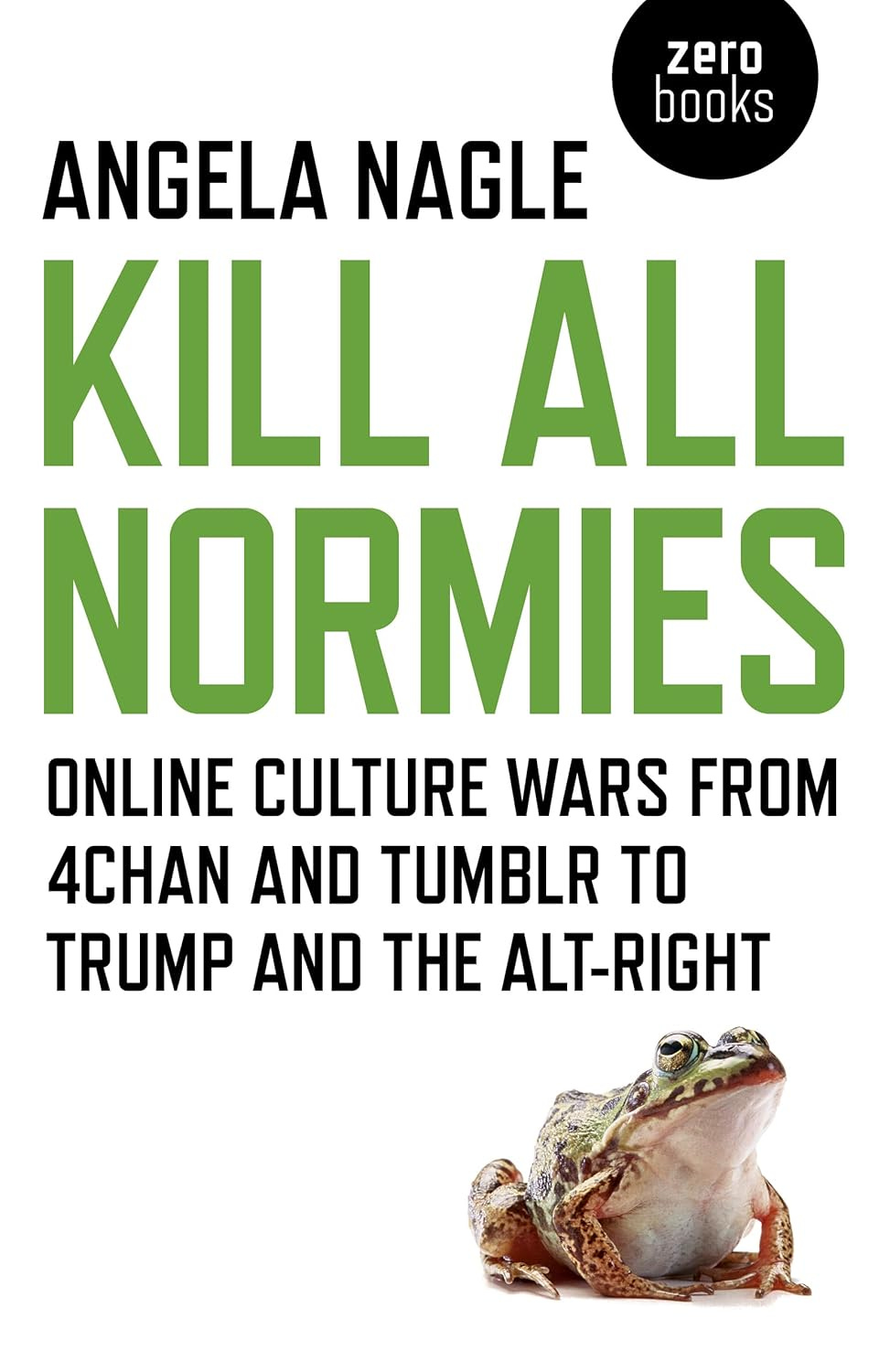We know our readers really, really love a good book—and that right now, you’re probably wondering which one to put in your beach bag this summer. So today, in place of Suzy’s column—she turned thirty this week! She deserves a break!—we’re bringing you the ultimate Free Press reading guide for summer 2025. If you scroll down, you’ll find Niall Ferguson sharing his favorite sci-fi novel, Abigail Shrier recalling her reaction to Douglas Murray’s new book, and Nellie Bowles reflecting on a new history that made her sit back and say “whoa.” These are not your average beach reads. Enjoy! —Isaac Grafstein
First up, Joe Nocera recommends the perfect bedtime reading: Sleep by Honor Jones.
When you see someone only in a certain role in life, you don’t know what mysteries—what gifts—they hold in their head. I knew Honor Jones, though not well, when she was an editor in the opinion section of The New York Times. She was quiet. Competent. Reserved. I expect she’s the same at The Atlantic, which now employs her.
So when I read her debut novel, Sleep, which was published in May, I did not expect to be bowled over. But I was. There is nothing quiet or reserved about this book; it tells a taut, hard story. Its central character is Margaret, a girl who suffers a childhood trauma—which her mother refuses to acknowledge, and which Margaret feels compelled to keep secret—and how that trauma affects her into adulthood as she raises her own children, both girls. The novel explores the tension that arises in the fraught dynamics of Margaret’s family with great skill and nuance.
It’s also a beautiful piece of writing, with vividly drawn characters and almost too-perfect descriptions. (There was nothing sinister now about the big, quiet house as the morning sun idled into the room. The light concentrated: first a diluted white, then cream then suddenly golden.) Her simple, straightforward sentences tremble with great power as the book builds to its climax. Is it a beach read? I don’t know. More likely, it’s the book you should start on a rainy day during your vacation, because once you begin it, you’ll want to finish it in the same sitting.
If you are on the lookout for a book that’s strictly beach-read appropriate, this week we published a delightful excerpt from a new surfing memoir by a former Obama speechwriter, which tells the story of an unlikely cross-political friendship:
TGIF czar Nellie Bowles recommends a book about Jesus that made her feel like a college kid: Miracles and Wonder by Elaine Pagels.
I highly recommend Elaine Pagels’ Miracles and Wonder, a gorgeous new book about the historical Jesus. Pagels is the best living writer on early Christianity, and this book, like her others, is lyrical and warm but also quite brave.
The premise is that you can’t understand a lot of the scriptures without knowing more about that time, and Pagels dives into the era, giving context for the words attributed to Jesus and tackling topics like the virgin birth and resurrection. Each chapter left me sitting back in my seat like a college kid, saying: “Whoa, that makes sense.” She explains how certain phrases Jesus and his followers spoke would be understood at the time—metaphors that were hidden jabs at the Romans, for example.
The result is a pretty radical new vision of Jesus in his era, as a man but also as a political figure. Now, I know this is a summer reading list, and a book of contrarian history isn’t an obvious beach read, but I promise it’s surprisingly breezy and fun.
Senior editor Will Rahn’s pick is a 900-page portrait gallery of the twentieth century that touches on everything from Richard Burton’s hair to Pablo Neruda’s allegiance to Stalin: Cultural Amnesia by Clive James.
Cultural Amnesia is one of those books that shouldn’t work but does. A sprawling, 900-page history of the twentieth century told via essays on 106 notables, Clive James’ masterwork also doubles as one of the more compelling defenses of liberal democracy ever written.
James is not really a political essayist; he’s much more interested in people than ideology. The essays swerve in unexpected directions—the one on Heat director Michael Mann focuses on the mutability of American English, for example, while the chapter on Terry Gilliam, of Brazil and 12 Monkeys fame, is really about the use of torture in police states.
Despite touching on everything from Richard Burton’s hair to Albert Camus’ attempts to dress and act like Humphrey Bogart, the through line eventually takes shape: “Liberal democracy deserved, and deserves, to prevail,” James writes, against the totalitarian impulses present on both the left and the right.
He sees ideologues as mediocrities, small and mean and enamored with violence, even when—or perhaps particularly when—the ideologues in question are lauded artists and intellectuals like Jean-Paul Sartre or Bertolt Brecht. Pablo Neruda, he informs us, helped Stalin’s agents kill Leon Trotsky, “but never wrote a poem on the subject: Something to remember when reading the thousands of ecstatic love poems he did write. They are full of wine and roses but no ice axe is ever mentioned.”
James’ primary villains are the fascists, the communists, and the intellectuals who provided support to either. His heroes are there, too: Many are rather obscure Jewish intellectuals snuffed out by the Third Reich, like Egon Friedell and Stefan Zweig. To James, their fates are a warning, not just about the persistence of antisemitism but the totalitarians who are woven into the free societies they seek to destroy: “What they hate is the bewildering complexity of civilized life, which we will find hard to defend if we share the same aversion. We shouldn’t. There is too much to appreciate.”
Nobody appreciated civilized life like James, who is often scattershot in his approach but never rigid in his thinking. And while Cultural Amnesia is a bit heftier than your average beach read, it’s still a good fit for your tote bag: The essays are mostly short, breezy, and easily digestible. If so inclined, you can skip the Nazis and the commies and relax with his offbeat glances at Louis Armstrong and Tony Curtis. You’ll be glad you did.
If you like history books, you’ll love Tina Brown’s review of Sonia Purnell’s newish biography of Winston Churchill’s very seductive daughter-in-law:
Columnist Larissa Phillips recommends a time-traveling novel about one patch of forest: North Woods by Daniel Mason.
In one chapter, runaway lovers follow a deer path through thickets and bogs, tumbling deliriously farther and farther from the Puritan colony in Western Massachusetts they’ve just escaped. Eventually they find the perfect spot deep in the woods by a brook and a clearing, where they will build a home; the young man places a stone marker and pulls seeds from his pocket.
But in Daniel Mason’s recent and masterful novel North Woods, nothing is ever predictable.
In the next chapter—spoiler alert—a young wife is kidnapped from her homestead, her husband is murdered by “heathens,” and the wife is taken deep in the woods, where she is finally abandoned at a cabin—by a brook and a clearing—inhabited by a lone old woman.
Eventually it becomes clear that the protagonist is the house itself, and the novel is tracking successive generations of inhabitants as they come and go through the centuries: an English soldier, spinster sisters, a woman running from slavery, and now a bounty hunter, looking for her. People escape society, make a home, find a refuge, plant an orchard, and eventually die. They all die, every one of them. North Woods is like a gorgeous time-lapse covering three centuries of inhabitants on this single plot of land, every chapter a new quest by a new set of characters.
Why read it? It’s an opportunity to immerse yourself in Daniel Mason’s beautiful prose, to follow amazing characters, and to enjoy the most satisfying plot twists. Several times, I gasped out loud with the delight of seeing erratic plot pieces snap into place—so satisfying! But even more relevantly, the book is a rebuke to our modern lives, where we obsess over so many minute crises each day. North Woods reminds us that we are each of us here for only a short time, that we are tiny specks in the ever-turning wheel of history.
Senior editor Emily Yoffe recommends an unflinching book of essays on middle age: The Catastrophe Hour by Meghan Daum.
In her new essay collection, Meghan Daum grapples with big things: mortality, marriage, the fate of Gen X, the thwarted longing for real estate, loving and losing dogs, and the dimensions of her chin. For 30 years, she has been an incisive chronicler of her life and times. Now, in an age that feels like an unraveling, in this book she puts her finger on both her unique experience and our collective one.
When you read The Catastrophe Hour, you should do so with pen in hand, because you’ll want to underline so many of her observations. Here’s a small sample:
-
“So it’s not like there was a day over the past few years when the music died. What’s happened is that as I’ve grown older there’s scarcely a song in my iTunes library that doesn’t make me so sad as to render it almost unlistenable.”
-
“I estimate that my attention span in 2017 is about 30 percent of what it was in 1997. Conversely, my rent back then was 30 percent of what it is now.”
-
“I am over 50 and I am childless and alone. . . . If you want to teach young people to grow up, pair up, and procreate, I’m a case study in what not to do. Yet I don’t regret how things have gone. I can’t imagine things going any other way.”
-
“For the better part of 50 years, I didn’t worry about my face. In fact, I enjoyed it. . . . Decades later, I suddenly hate my face. My chin now strikes me as requiring its own zip code.”
When you read a Meghan Daum essay you often feel, “You too? Yes, that’s it exactly!” But even when you feel, “It’s not that way for me,” she makes you want to understand how things have played out for her.
Another thing: This book is a beautiful object, and so packable it can fit in a purse. What a delight it would be this summer to pull it out and engage in that now-radical act of reading a book in public.
Earlier this year, we ran an excerpt from The Catastrophe Hour about how Meghan managed to do something almost impossible: lose thousands of dollars in the Los Angeles housing market. Read the full story here:
Historian and columnist Niall Ferguson recommends a prescient sci-fi novel about a future shaped by AI: The Diamond Age by Neal Stephenson.
Neal Stephenson is one of the great writers of our time; his science fiction has an uncanny way of turning into science fact. Everyone should read his 1995 novel The Diamond Age, which is set in a future with artificial intelligence as well as ubiquitous nanotechnology. Just as his 1992 novel Snow Crash anticipated the metaverse, The Diamond Age is 30 years ahead of the large language models. And, with his customary prophetic insight, Stephenson probably has a better idea of the social consequences of new technology than anyone pontificating about the subject today.
When you’ve finished The Diamond Age—which is so addictive you’ll find it hard to stop reading—turn to Stephenson’s latest, Polostan, a thrilling historical novel set in the 1930s, which includes one of the most agonizingly convincing torture scenes in all of literature.
If poetry’s more your thing, then don’t miss our interview with “the unofficial poet laureate of Trump’s America,” Joseph Massey, whose new collection is a surprise bestseller.
Contributing editor Abigail Shrier wants this to be required reading for every high school student in the Anglosphere: On Democracies and Death Cults by Douglas Murray.
Every writer knows the pangs of discovering a new book so excellent, you wish it was yours. But with On Democracies and Death Cults, the feeling is silly—only Douglas Murray could have written it. I read it straight through in one day, then turned to the first page and began again.
Murray is neither Jewish nor Israeli. But he describes the double bind Israel has found itself in since October 7, 2023, with a keen insight only an outsider could manage and only the best of friends would attempt. Murray asks and answers the most important questions: “Why did this happen? Why did the world’s sympathy seem to be not with the victims of the massacre but with their perpetrators?” long before Israel even responded to the attack. Why did almost the whole world get this conflict so completely upside down?
The book is packed with delicate observations from interviews Murray conducted in every corner of Israel, including with the teenage female IDF recruits tasked with collecting the remaining parts of victims’ bodies from the hulls of cars in which the occupants were burned to death on October 7.
Every high school student in North America, Europe, and Australia should be given this book and prompted to read it; Western civilization would benefit immeasurably. And perhaps the single best thing parents could do for their young adults’ education before they head into the amoral funhouse of the American university would be to give them this book.
Bad actors promote October 7 revisionism the way others did Holocaust denial. But Douglas Murray has given us the essential document for the defense, not just of Jews or Israel, but of fact and of history. This book will serve as the best explainer, for those still scratching their heads, of how “Free Palestine” became the cause célèbre of the West’s young radicals.
Earlier this year, we ran an excerpt from Murray’s book in which he meets with grieving families, young soldiers, and captured terrorists in war-torn Israel.
Senior editor Peter Savodnik picks a darkly funny campus story that reminds us what’s been lost in the age of safe spaces and SSRIs: The Rabbit Club by Christopher Yates.
You should preorder Christopher Yates’ novel The Rabbit Club, which is slated for release July 8, for two reasons: First, it’s great fun. Second, it’s a window into a world that no longer is—the once-storied university—and it’s imperative that we grasp what we’ve lost if we are ever to reclaim it.
The novel toggles between 18-year-old Alistair McCain’s first year at Oxford University in the mid-1990s, and an unreliable narrator, Professor William Goodwin, in upstate New York a quarter century later.
It is something of a mystery and a psychological thriller, and you’ll be pretty sure you know where things are heading until a little more than two-thirds of the way through, when you’ll realize you have no idea. (It’s hardly surprising that Yates writes puzzles when he’s not writing novels.)
Just as important: The Rabbit Club, with its lovely literary parallels and allegories, parachutes us back to the campus that once was, in which young adults were immersed in books and ideas, and argued and drank and smoked and frequently had sex with each other. This was college life before the internet and the mass prescription of SSRIs and the tsunami of stupid. This was when we liked to have fun, and sometimes—well—that fun got out of hand, and most of us came out just fine. (Unless you were a character in Donna Tartt’s The Secret History.)
I’ll be taking part in a conversation that Yates is hosting in New York the day after the book’s publication, and if you’re in the city, you should come by.
Reporter River Page’s pick is a sharp account of how niche online subcultures reshaped modern politics: Kill All Normies by Angela Nagle.
In the past several years, many people—including me—have observed the ascent of what some call the “woke right,” a segment of the far right whose identitarian radicalism mirrors that of the far left. Online, this group unambiguously promotes racial segregation and antisemitism while expressing views about gays and women that would have seemed regressive in the 1950s.
Angela Nagle saw this coming. Written in the wake of the 2016 election, her 2017 book Kill All Normies examines the rise of left-wing identity politics on Tumblr alongside the concurrent rise of what was then called the alt-right on 4chan, concluding that the two groups needed one another and shared many of the same impulses.
Read today, Kill All Normies is a history of the online culture wars—many long forgotten—that gave us the politics we have today, where the line between offline and online is so blurred as to scarcely exist at all.
Former CIA analyst Martin Gurri recommends a smart, entertaining autopsy of the press: Postjournalism and the Death of Newspapers by Andrey Mir.
Why should the news matter? The news media would reply: Because it tells truth to power and brings objective knowledge of far-flung events to the masses. Yet, even in the digital age, the news media is big business. It sells its products for hard cash. What is the prime directive: truth-telling or profit-making?
By way of an answer, I recommend Andrey Mir’s Postjournalism and the Death of Newspapers, published in 2020, but still the most cogent history of the newspaper, with its double life as both authority and commodity. Weaving together a mix of memorable epigrams, amusing anecdotes, and masses of data, the book follows the 400-year story of the newspaper, from its birth in seventeenth-century Venice and Germany to its mortal agonies at the present time.
Mir leaves no doubt that the medium is dying. Unexpectedly, however, there has been a stay of execution, and one man is entirely responsible for this act of mercy—you probably have guessed it: Donald Trump.
The New York Times has turned its fortunes around by abandoning any pretense of informing the public and commodifying Trump instead. That’s the post in postjournalism. It’s journalism that sells polarization. Call it sectarian fervor, call it propaganda—it has been, for the Times, a remarkably successful business model.
Hard as it is to believe, even Trump will one day pass from the scene. What will become of the newspaper then? I lack the space here to deal properly with Mir’s prophetic speculations—suffice it to say that they are both insightful and entertaining. Postjournalism is the kind of read that will keep your mind whirling during those lazy, hazy summer days.
When you’ve finished reading about the death of newspapers, read Joe Nocera’s great review of ex–Vanity Fair editor Graydon Carter’s new memoir, which is all about the death of magazines:
For America’s birthday, senior editor Oliver Wiseman suggests a gripping history of the nation’s capital during the Civil War: Reveille in Washington by Margaret Leech.
The best summer reads are an immersive experience. Reveille in Washington, Margaret Leech’s history of the nation’s capital during the Civil War, is exactly that. This book transported me to a different time, if not to a different place. (I live in D.C.)
Leech’s Washington is full of spies, convalescing soldiers, and prostitutes. It is a sleepy Southern city shocked into life by the war. The town is shabby, incomplete, muddy, and on the brink: Both the center of so much of the drama, and a frontier town at constant risk of being cut off from the rest of the Union. Leech brings to life rogues and heroes: insalubrious lobbyists, vain generals—and some of the greatest Americans ever to have lived.
This is pop history, a gripping and evocative page-turner—but don’t be a snob about that. It’s also revelatory: a narrative of the Civil War and its key characters that, in its day-to-day detail, makes clear how contingent even the most seismic moments in history really are.
Leech won the Pulitzer Prize in history for Reveille in Washington, the first woman to do so. (Let’s park the fact that Leech was married to Ralph Pulitzer, whose family established the award.) It’s an achievement that’s all the more impressive for the fact that Leech had written a few novels but no history before embarking on this book, and she did so with next to no knowledge of the Civil War.
“Ignorance, like inexperience, seemed to me a defect supremely easy to remedy,” she later said. She also said it never occurred to her “that I should struggle longer than the Federal army before I brought those blue-clad boys marching in triumph up Pennsylvania Avenue.” And she didn’t—after five years of research and writing, the book was out. Reveille in Washington was published on the eve of America’s entry into another war. I like to think of the civil servants, diplomats, and lawmakers in World War II Washington reading this book about a nation at war, after spending the day worrying about a world at war. But it will work just as well on a beach or porch somewhere else this summer.
The Free Press earns a commission from any purchases made through all book links in this article.
Click this link for the original source of this article.
Author: Isaac Grafstein
This content is courtesy of, and owned and copyrighted by, https://bariweiss.substack.com feed and its author. This content is made available by use of the public RSS feed offered by the host site and is used for educational purposes only. If you are the author or represent the host site and would like this content removed now and in the future, please contact USSANews.com using the email address in the Contact page found in the website menu.


